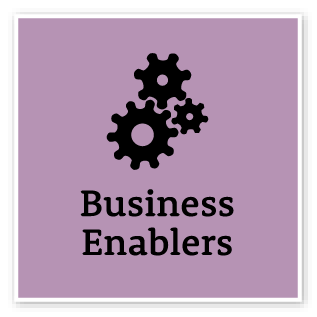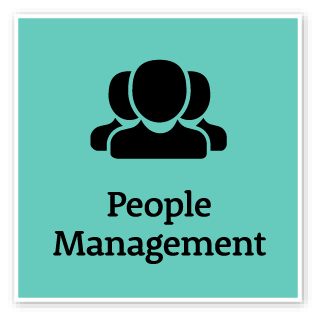Create Role Description
The generated role description is an online preview of the completed role description.
Role Description
| Cluster | Premier and Cabinet |
| Agency | NSW Electoral Commission |
| Division/Branch/Unit | Land and Economy Directorate |
| Role Number | x |
| Classification/Grade/Band | Clerk Grade 11/12 |
| Senior executive work level standards | Not Applicable |
| ANZSCO Code | x |
| PCAT Code | x |
| Date of Approval | 29 October 2021 |
| Agency Website | www.aboriginalaffairs.nsw.gov.au |
Agency overview
We support the Premier and the Special Minister of State, the Cabinet, Ministers and agencies by coordinating policies and services across government. We lead policy development, provide innovative ideas and support Government plans and projects.
Working with us will give you a broad overview in areas such as public policy formulation, public administration and state administrative matters and an opportunity to be involved in a range of state-wide policies, issues and projects.
For more information go to http://www.dpc.nsw.gov.au/about/about_the_department
Aboriginal Affairs Overview
Aboriginal Affairs NSW works alongside Aboriginal people and communities to make sure their voices are heard and their interests represented in government. By leading and influencing policy change in government, we support the long-term social, cultural and economic aspirations of Aboriginal people in NSW. Our agency works closely with Aboriginal communities and our staffing reflects the diversity of these communities. Over 50 percent of our staff, including senior leadership, identify as Aboriginal. We are also committed to providing a culturally safe and supportive workplace with flexible working arrangements for all staff.
To learn more about our work visit www.aboriginalaffairs.nsw.gov.au
Primary purpose of the role
Key accountabilities
• Lead and oversee all aspects of project development and implementation across a portfolio of complex projects, including preparing business cases and project plans, establishing appropriate governance, identifying, allocating and managing resources, and meeting reporting requirements, to ensure project outcomes are achieved on time, on budget, to quality standards and in line with the Agency project management methodology
• Develop and implement strategies and tools for the continuous monitoring and evaluation of projects, including risk and contingency management, benefits realisation, and project impact and quality measures, to identify and address issues and assess project progress and overall effectiveness
• Lead and manage project team/s, including internal and external project staff, to deliver all key project/s milestones and outcomes
• Manage stakeholder relationships through effective communication, negotiation and issues management to ensure stakeholders are engaged throughout the project and project deliverables are met
• Provide expert advice and information to stakeholders on emerging project issues and present recommendations to support project delivery in line with established plans, budgets, timeframes, policy objectives and other project priorities
• Oversee research and formulate recommendations to support evidence-based project planning and decision making
Key challenges
• Achieving multiple project objectives, given limited resources and tight deadlines, and the need to identify project interdependencies and balance competing demands and priorities
Key relationships
| Who | Why |
|---|---|
| Internal | |
| Director |
|
| Project Team |
|
| Direct Reports |
|
| Stakeholders |
|
| External | |
| Stakeholders |
|
Role dimensions
Decision making
• Ensures all documents, reports, ministerial correspondence, project proposals and submissions are completed within required timeframes and to a high standard
Reporting line
Direct reports
Budget/Expenditure
For allocated priority projects, this role, has responsibility for ensuring value for money, preparing accurate estimates and costs and resources and monitoring project budgets over the life of the project, including highlighting any risks and possible solutions.
Key knowledge and experience
Essential requirements
o is of Aboriginal and/or Torres Strait Islander descent, and
o identifies as an Aboriginal and/or Torres Strait Islander person, and
o is accepted as a such by the Aboriginal and/or Torres Strait Islander community.
Capabilities for the role
The NSW public sector capability framework describes the capabilities (knowledge, skills and abilities) needed to perform a role. There are four main groups of capabilities: personal attributes, relationships, results and business enablers, with a fifth people management group of capabilities for roles with managerial responsibilities. These groups, combined with capabilities drawn from occupation-specific capability sets where relevant, work together to provide an understanding of the capabilities needed for the role.
The capabilities are separated into focus capabilities and complementary capabilities.
Focus capabilities
Focus capabilities are the capabilities considered the most important for effective performance of the role. These capabilities will be assessed at recruitment.
The focus capabilities for this role are shown below with a brief explanation of what each capability covers and the indicators describing the types of behaviours expected at each level.
| FOCUS CAPABILITIES | |||
|---|---|---|---|
| Capability group/sets | Capability name | Behavioural Indicators | Level |
 |
Display Resilience and Courage Be open and honest, prepared to express your views, and willing to accept and commit to change |
|
Advanced |
 |
Communicate Effectively Communicate clearly, actively listen to others, and respond with understanding and respect |
|
Advanced |
| Influence and Negotiate Gain consensus and commitment from others, and resolve issues and conflicts |
|
Adept | |
 |
Deliver Results Achieve results through the efficient use of resources and a commitment to quality outcomes |
|
Adept |
| Think and Solve Problems Think, analyse and consider the broader context to develop practical solutions |
|
Advanced | |
 |
Project Management Understand and apply effective planning, coordination and control methods |
|
Advanced |
 |
Inspire Direction and Purpose Communicate goals, priorities and vision, and recognise achievements |
|
Advanced |
| Optimise Business Outcomes Manage people and resources effectively to achieve public value |
|
Adept | |
Complementary capabilities
Complementary capabilities are also identified from the Capability Framework and relevant occupation-specific capability sets. They are important to identifying performance required for the role and development opportunities.
Note: capabilities listed as ‘not essential’ for this role are not relevant for recruitment purposes however may be relevant for future career development.
| COMPLEMENTARY CAPABILITIES | |||
|---|---|---|---|
| Capability group/sets | Capability Name | Description | Level |
 |
Act with Integrity | Be ethical and professional, and uphold and promote the public sector values | Adept |
| Manage Self | Show drive and motivation, an ability to self-reflect and a commitment to learning | Adept | |
| Value Diversity and Inclusion | Demonstrate inclusive behaviour and show respect for diverse backgrounds, experiences and perspectives | Intermediate | |
 |
Commit to Customer Service | Provide customer-focused services in line with public sector and organisational objectives | Adept |
| Work Collaboratively | Collaborate with others and value their contribution | Adept | |
 |
Plan and Prioritise | Plan to achieve priority outcomes and respond flexibly to changing circumstances | Adept |
| Demonstrate Accountability | Be proactive and responsible for own actions, and adhere to legislation, policy and guidelines | Adept | |
 |
Finance | Understand and apply financial processes to achieve value for money and minimise financial risk | Adept |
| Technology | Understand and use available technologies to maximise efficiencies and effectiveness | Intermediate | |
| Procurement and Contract Management | Understand and apply procurement processes to ensure effective purchasing and contract performance | Adept | |
 |
Manage and Develop People | Engage and motivate staff, and develop capability and potential in others | Adept |
| Manage Reform and Change | Support, promote and champion change, and assist others to engage with change | Adept | |

